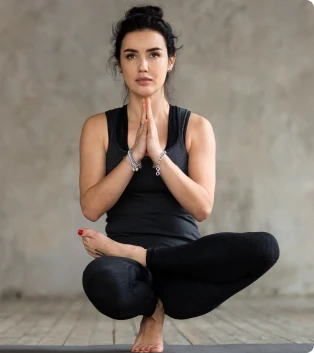Naturopathic Doctors approach endometriosis differently.
If you haven’t ready part I yet, I suggest you head there before reading any further.
There have been many nutrients and herbs that have been studied for endometriosis. Many of them help to balance your hormones like vitex and vitamin E. Others like selenium and B vitamins can be helpful for detoxification of estrogen. Pycnogenol, vitamin C, and beta carotene are all great at helping to decrease inflammation and support the immune system.
When I start to work with any patient, I like to start with the foundations because you are what you eat and your habits make your health what it is. Your diet and lifestyle can have a very big impact on your health. By shifting some of these activities, you can see a big change in your symptoms.
It’s important to reduce inflammatory foods in your diet. What does that mean? You will want to avoid foods that contain trans fats, caffeine, sugar, dairy, and alcohol.
What are trans fats?
Trans fats can occur naturally in animal products, but are mostly found in packaged foods. These trans fats are made during the processing of food to make them more shelf stable and less expensive. Trans fats can an increase in cholesterol, obesity, and diabetes.
Studies have also shown that a diet high in trans fats increases your risk to endometriosis (Missmer, 2010).
Caffeine…
…can increase the incidence of endometriosis and if you feel like you’re constantly relying on caffeine, it can be beneficial to take a break. Caffeine can be increasing stress and anxiety, once you cut it out you may notice you aren’t as anxious anymore. Caffeine can make hormonal imbalances worse and in turn worsen that PMS you’re experiencing. Don’t worry, this can be a temporary break from your morning coffee!
Sugar and dairy products can also make hormonal issues worse.
Eating a diet that’s high in sugar can cause high spikes in your blood sugar, this ends up bringing on a cascade of reactions, between spiking cortisol and causing chaos for your hormones that regulate your cycle.
Did you know that alcohol can increase your estrogen levels by 10%?
When you’re working on balancing your hormones, it’s important to eliminate alcohol. It doesn’t need to be gone from your life completely, but it’s crucial during this time. Your liver processes estrogen in 2 phases, but one thing that can bring that process to a halt is alcohol. Instead of your liver focusing on breaking down estrogen, your liver will use all its resources to break down and eliminate alcohol.
We covered some of the top inflammatory foods, so what about foods that decrease inflammation? You’ll want to include these foods in your diet to help reduce the inflammatory burden on your body and support happy hormones.
-
Anti-inflammatory foods & herbs
-
Wild caught Alaskan salmon
-
Berries (strawberries, blackberries, blueberries, raspberries, cranberries)
-
Olive oil
-
Leafy green vegetables
-
Turmeric
-
Ginger
-
Onions
-
Garlic
-
Cinnamon
-
Mustard (powder and seeds, not the stuff you put on hot dogs or burgers)
Exercise can be a great tool, you want to make sure you are moving your body daily! Exercise is great for helping support your blood sugar, building muscle. If you aren’t currently exercising, my tip for you is to start about 2 times per week, doing something that you enjoy like walking, Zumba, Pilates, yoga, running. Then you can increase from there. The goal is to get your body moving for at least 20 minutes a day.
Time for a truth bomb, hormonal birth control does not balance your hormones. Hormonal birth control will just cover up the underlying problem. Getting your hormones tested and addressing your specific hormonal needs by supporting the whole body can be very beneficial to those with endometriosis. Hormone testing can tell us a lot.
One of my favorite ways to test hormones is through a DUTCH test. This is a urine test that you can get from your holistic practitioners. DUTCH testing gives us a great picture of where your hormones are at, how your body and liver are processing them, and even gives us a look at your cortisol levels.
Hormone testing can be especially important if you are having long periods, heavy bleeding, and short/long cycles, or even irregular cycles. Most of these symptoms come with endometriosis. Investigating what’s going on with your hormones to help correct that imbalance and get you relief. And you can do this test throughout the month for us to see how your hormones are rising and falling, but also helps to let us know if you are actually ovulating.
Hormones can be tricky because you can see a set of symptoms, but this doesn’t exactly tell us where your hormones are at. These symptoms are relative to the estrogen-progesterone balance.
The relationship between estrogen and progesterone is an important one and we often hear about estrogen dominance. There can be many reasons for this, but without seeing your levels, we’ll have a hard time finding out why.
This is why I love doing DUTCH testing with my patients. You get to see the whole picture, not just a set of symptoms. We get to uncover the root cause of that hormonal imbalance.
Once we find out what’s going on with your hormones, we can supplement appropriately with herbs and nutrients (think vitex, DIM, licorice, calcium d-glucurate).
What about the pain that comes with endometriosis?
During that time of the month, period pain can be so bad. Having some tools other than Tylenol or Midol to help with the pain. Some supplements have been studied to help with period pain and the pain that comes with endometriosis.
Herbs like turmeric and ginger can be very beneficial for endometriosis because of their anti-inflammatory nature. You can make turmeric-ginger tea, or these can be found in capsule form.
Another great herb for period pain is something called cramp bark. You may have guessed it, this herb helps with period cramps! This herb helps to improve the circulation of blood to the uterus, bringing more oxygen and nutrients. Cramp bark will also help soothe the contractions in the uterus that’s occurring to help release the endometrial shedding (your period).
Overall, there is so much that can be done with endometriosis naturally. You have more options than you think. It’s important to find a provider that you feel comfortable with so you can ask questions and actually feel supported in your health journey.
If you are looking for a provider, set up a discovery calls with one of the doctors here at Soleil. Dr. Alyssa or Dr. Lyndsey can help guide you through the process and lead you in the right direction. One amazing feature of naturopathic medicine is that we work with the body as a whole. This means, we aren’t just going to see you as a set of symptoms that are restricted to the uterus. As naturopathic doctors, we will look at everything that is going on for you, diving deeper to address the root cause and help you get relief.



